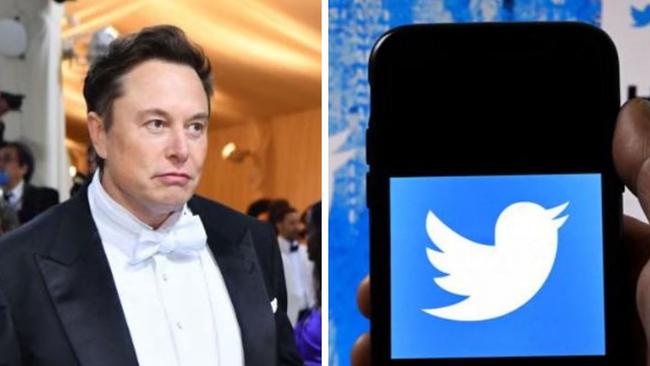Twitter chief’s spam defence draws Musk emoji response
Twitter CEO Parag Agrawal suggests external estimates of bot accounts wouldn’t be accurate. Potential buyer Elon Musk has responded with a poop emoji.

Twitter chief executive Parag Agrawal defended his company’s ability to fight spam accounts, an explanation that came after Elon Musk last week said his deal to buy Twitter was temporarily on hold amid concerns about the number of spam accounts on the social-media platform.
“First, let me state the obvious: spam harms the experience for real people on Twitter, and therefore can harm our business,” Mr Agrawal said as part of a series of posts on Monday (US time).
“As such, we are strongly incentivised to detect and remove as much spam as we possibly can, every single day. Anyone who suggests otherwise is just wrong.”
Mr Agrawal said his company suspends more than half a million spam accounts daily and locks millions of accounts suspected of being spam weekly if they can’t be verified by humans through tools such as phone verification.
He also suggested that external estimates of spam accounts wouldn’t be accurate.
Mr. Musk, the CEO of Tesla, said last week he would try to check Twitter’s figures and urged others to do the same.
“Unfortunately, we don’t believe that this specific estimation can be performed externally, given the critical need to use both public and private information (which we can’t share),” Mr Agrawal said on Monday.
“Externally, it’s not even possible to know which accounts are counted as mDAUs on any given day,” he added, referring to monetisable daily active users.
Mr Musk responded with multiple tweets, one that solely depicted a piece of poop.
“So how do advertisers know what they’re getting for their money?” Mr Musk said in a separate reply on Twitter.
“This is fundamental to the financial health of Twitter.”
The latest dust-up comes after Mr Musk, the world’s richest person known for his outspokenness on social media, on Friday threw his deal to buy Twitter into question.
Mr Musk had said his $US44bn deal to buy the social-media company was “temporarily on hold pending details supporting calculation that spam/fake accounts do indeed represent less than 5% of users.”
He also said in a separate tweet that he was “still committed to” the deal.
Fake and spam accounts are a challenge for the social-media industry more broadly and can hurt the experience on platforms for real users.
“Bot” operators have used fake accounts to spread wrong information, influence the political landscape and incite violence.
“Now, we know we aren’t perfect at catching spam,” Mr Agrawal said. “And so this is why, after all the spam removal I talked about above, we know some still slips through. We measure this internally.”
He added that Twitter has estimated less than 5 per cent of reported monetisable daily active users are spam accounts every quarter.
In multiple filings, Twitter has included this less-than 5 per cent figure, which it says are based on a sampling while adding that “the actual number of false or spam accounts could be higher than we have estimated.”
Mr Agrawal also said that Twitter “shared an overview of the estimation process with Elon a week ago and look forward to continuing the conversation with him, and all of you.”
One of Mr. Agrawal’s tweets on Monday also delved into how humans review whether a Twitter account is spam.
Mr Musk replied in his own tweet: “Have you tried just calling them?”
— The Wall Street Journal



To join the conversation, please log in. Don't have an account? Register
Join the conversation, you are commenting as Logout